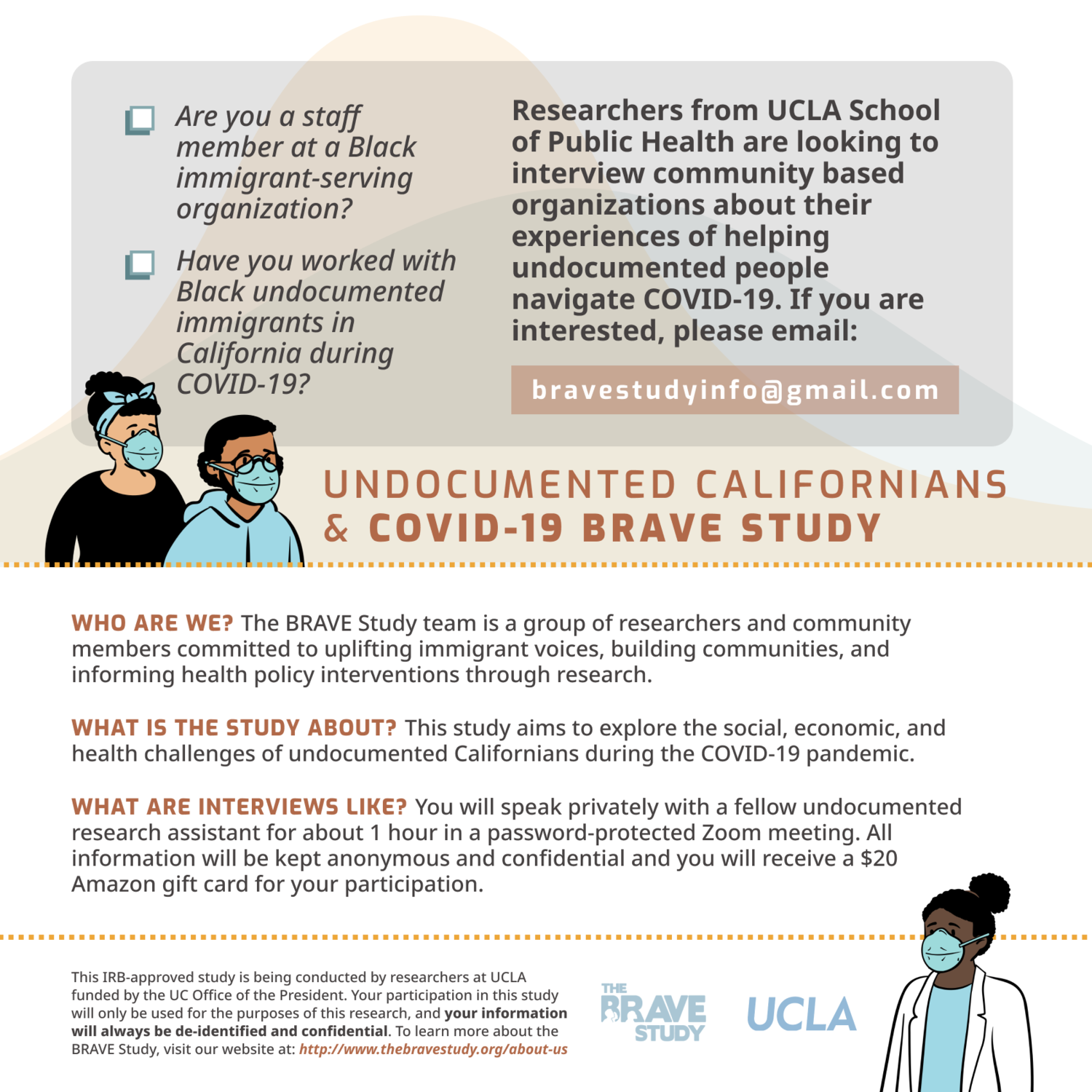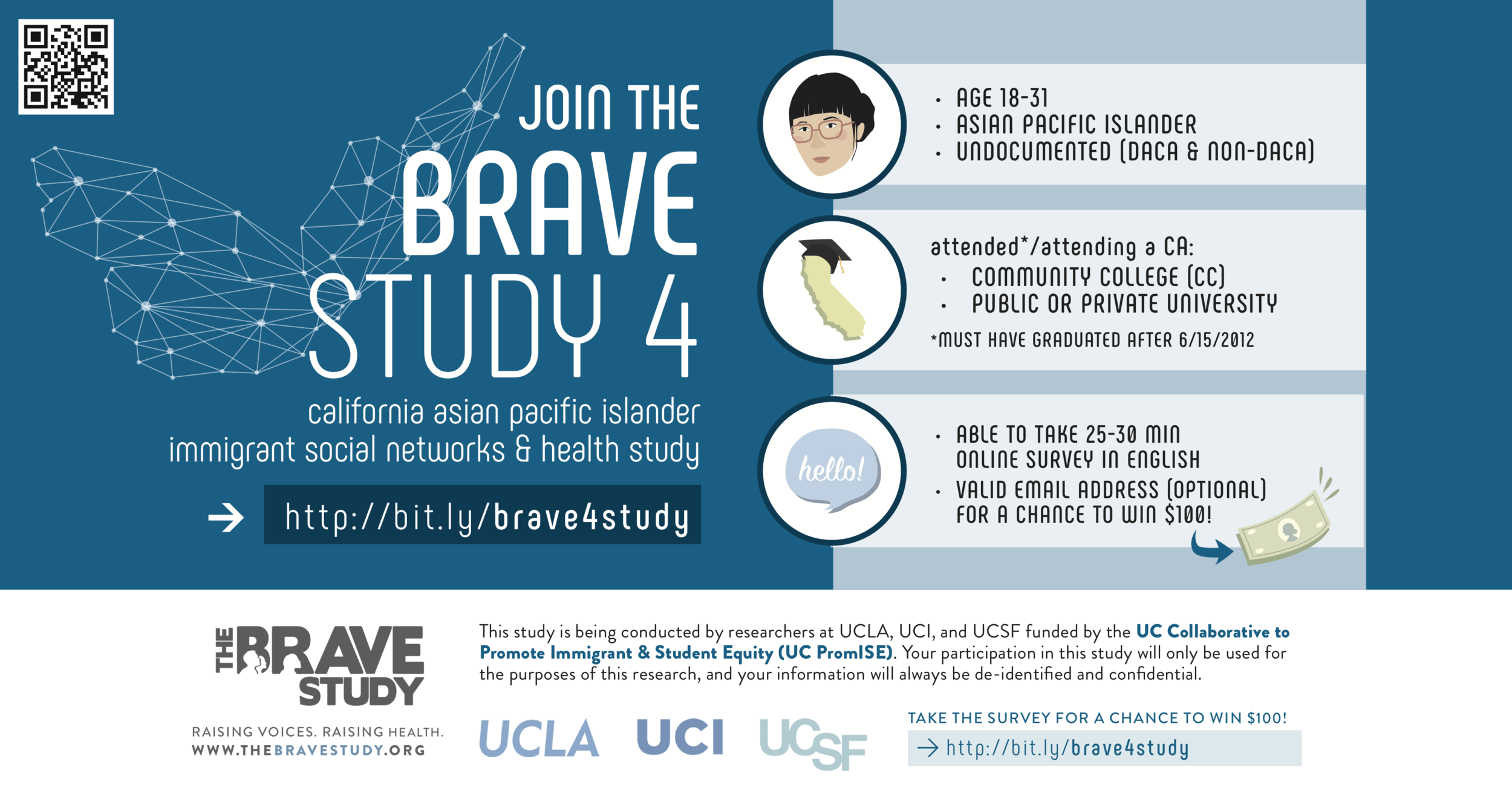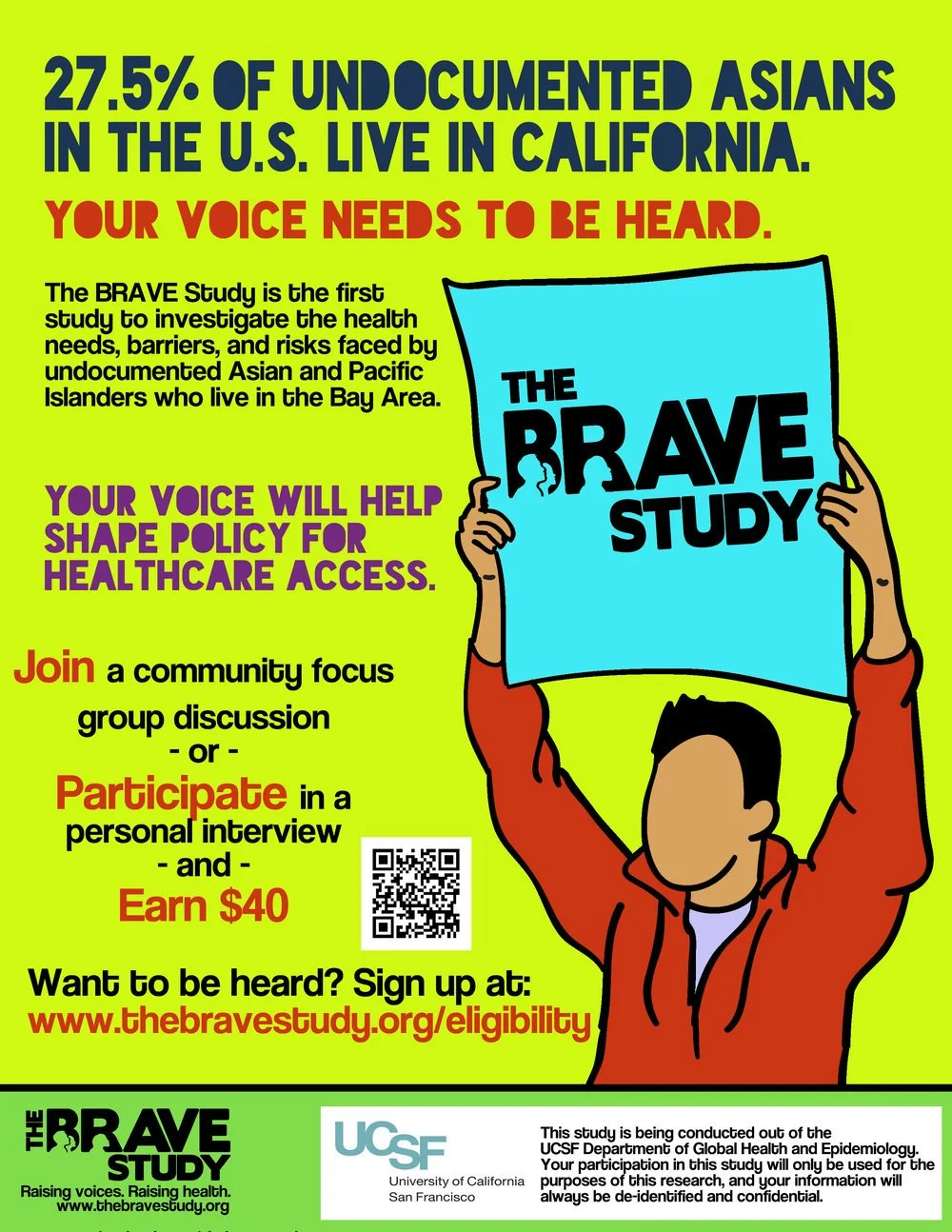
Our studies
National Sexual and Reproductive Health (SRH) of Asian Immigrant Women Study (Recruitment UPCOMING)
Significant racial/ethnic inequities persist in access to comprehensive sexual and reproductive healthcare (SRH), particularly among the over 44 million foreign-born individuals in the US. Asian women report greater odds of unintended pregnancies compared to white women, and Asian immigrants are less likely to use SRH services compared to their US-born counterparts.
We will establish the first multi-city, sequential mixed-methods study of the SRH of 2,000 documented and undocumented Asian immigrant women aged 18-49 years, with a focus on the four largest undocumented Asian ethnicities (Indian, Chinese, Filipinos, and Koreans) in Los Angeles, New York City, Houston, and Atlanta - cities in states with the highest numbers of Asian immigrants and diverse state policy contexts.
Our short-term goal is to inform community and policy-level SRH outreach and intervention efforts, which will help us achieve our long-term goal to improve the SRH equity of immigrants, families, and communities
Covid-19 / Reproductive Justice Study (Recruitment CLOSED)
The BRAVE COVID-19/RJ Study aims to examine the role of COVID-19 in exacerbating existing inequities related to reproductive healthcare and assess how immigration status influences the ability to attain reproductive justice among undocumented communities. We hope to learn more about reproductive healthcare and decision-making for undocumented immigrants in the context of historical oppression, racism, trauma, structural vulnerabilities, and gendered roles and constraints. In the process, we plan to identify resilience, strengths, and person-centered care approaches for immigrants and their communities, and document how resilience is adapted and changes over time.
COVID-BRAVE Study (Recruitment CLOSED)
We predict that COVID-19 may have disproportionate health and social impacts on undocumented communities, but lack proper data to deeply understand how undocumented immigrants are experiencing the pandemic. So far, we know many undocumented immigrants work “essential” jobs, but lack access to federal assistance (e.g. CARES Act) and face a multitude of social and economic vulnerabilities. As immigration enforcement actions, anti-immigrant policies, police violence, and xenophobia have eroded the undocumented community’s trust in public systems, we want to know how undocumented immigrants have navigated the ongoing pandemic as they struggle to allay fears surrounding access to health care, public benefits, and other services. In the process, we also hope to learn about any non-governmental social supports and community-level assets that increase undocumented people’s resilience against emergencies and marginalization.
At the end of the project period, we will have established a state-wide quantitative survey of undocumented immigrants in California containing detailed information about the social, economic, and health impacts of COVID-19. We hope the data can be used to inform policy makers, health and social service organizations, and private groups involved in the California Immigrant Resilience Fund to better support undocumented immigrants during public health emergencies such as COVID.
California API Immigrant Social Networks and Health Study (Recruitment Closed)
The BRAVE 4: California API Immigrant Social Networks & Health Study is interested in understanding the social networks and economic, social, and health needs of California’s undocumented Asian and Pacific Islander public college students and recent graduates.
Safe Clinics Study (Recruitment Closed)
The BRAVE 3: Safe Clinics Study, aims to understand the perspectives and experiences of Federally Qualified Health Centers (FQHCs) in their efforts to make clinics safer for immigrant patients, particularly those who are undocumented. In the context of recent public charge policy proposals and heightened visibility of immigration enforcement activities, we want to understand how efforts to retain and assure safety for immigrant patients have played out at Asian and Pacific Islander serving FQHC's under the Association of Asian Pacific Community Health Organizations (AAPCHO).
Undocumented API & Youth in Northern California Study
While APIs represent a smaller proportion of the undocumented, they are also the fastest growing immigrant population. There are currently 1.5 million undocumented APIs in the US; of these, 28% are living in California, accounting for approximately 13% of the state’s undocumented population. APIs are, therefore, an important population in the health and immigration reform debates, yet there is a lack of health data on this population, particularly among the undocumented. The BRAVE Study (Building community Raising API Voices for health Equity) is the first study to assess Asians and Pacific Islander (API) undocumented youth health needs and health status and the influence of Deferred Action on Childhood Arrivals (DACA) on the social determinants of health. The objectives of the BRAVE Study are to:
Describe the social context of API undocumented youth in Northern California and the influence of documentation status on health, social, and economic outcomes.
Examine the influence of DACA on undocumented API youth.
Undocumented API & Latino Youth in California Study (Recruitment Closed)
The BRAVE 2: Undocumented API & Latino Youth in California Study investigates the health status, health utilization patterns, and the effect of social policies on undocumented Asian and Pacific Islander and Hispanic and Latino young adults living in California. Through a confidential web-based survey we aim to highlight the health needs, challenges, and risks that undocumented youth face. The BRAVE Study is modeled after a study on the Latino DACA-eligibile population, and serve as new data for comparison to understand cross-national health inequities. Our goal is to share findings with communities and use the information to inform health policy interventions for undocumented immigrants.





